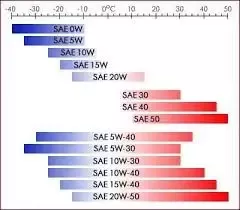Reducing noise in oil involves several strategies to maintain engine health and minimize unwanted sounds. Here are some effective approaches:
- Choose High-Quality Oil:
- Opt for premium-grade engine oil that meets the manufacturer’s specifications.
- High-quality oil contains better additives and detergents, ensuring smoother operation and reduced noise.
- Use the Right Viscosity:
- Follow the recommended oil viscosity (thickness) specified in your vehicle’s manual.
- Proper viscosity ensures optimal lubrication and noise reduction.
- Regular Oil Changes:
- Change the oil at the recommended intervals (usually every 5,000 to 7,500 miles or as per your vehicle’s guidelines).
- Fresh oil maintains proper lubrication and minimizes wear-related noise.
- Check Oil Levels:
- Regularly monitor your oil level using the dipstick.
- Low oil levels can lead to increased friction and noise.
- Inspect and Maintain Oil Filters:
- Replace the oil filter during each oil change.
- A clean filter ensures proper oil flow and reduces contaminants.
- Address Leaks and Seals:
- Inspect for oil leaks and damaged seals.
- Leaks can lead to oil loss and noise. Fix any issues promptly.
- Avoid Overfilling:
- Follow the correct oil capacity for your engine.
- Overfilling can cause foaming and affect lubrication.
- Monitor Engine Temperature:
- Overheating can degrade oil quality and increase noise.
- Ensure your cooling system functions properly.
- Check for Sludge Buildup:
- Sludge (thickened oil deposits) can clog passages and affect lubrication.
- Regular oil changes prevent sludge formation.
- Inspect Bearings and Components:
- Worn bearings or damaged components can create noise.
- Regular maintenance helps identify and address issues.
Remember that maintaining a healthy engine contributes to quieter operation and prolongs the life of your vehicle. Consult a professional mechanic if you experience persistent or unusual engine noise.
Read More: Will Thicker Oil Stop Engine Noise?


